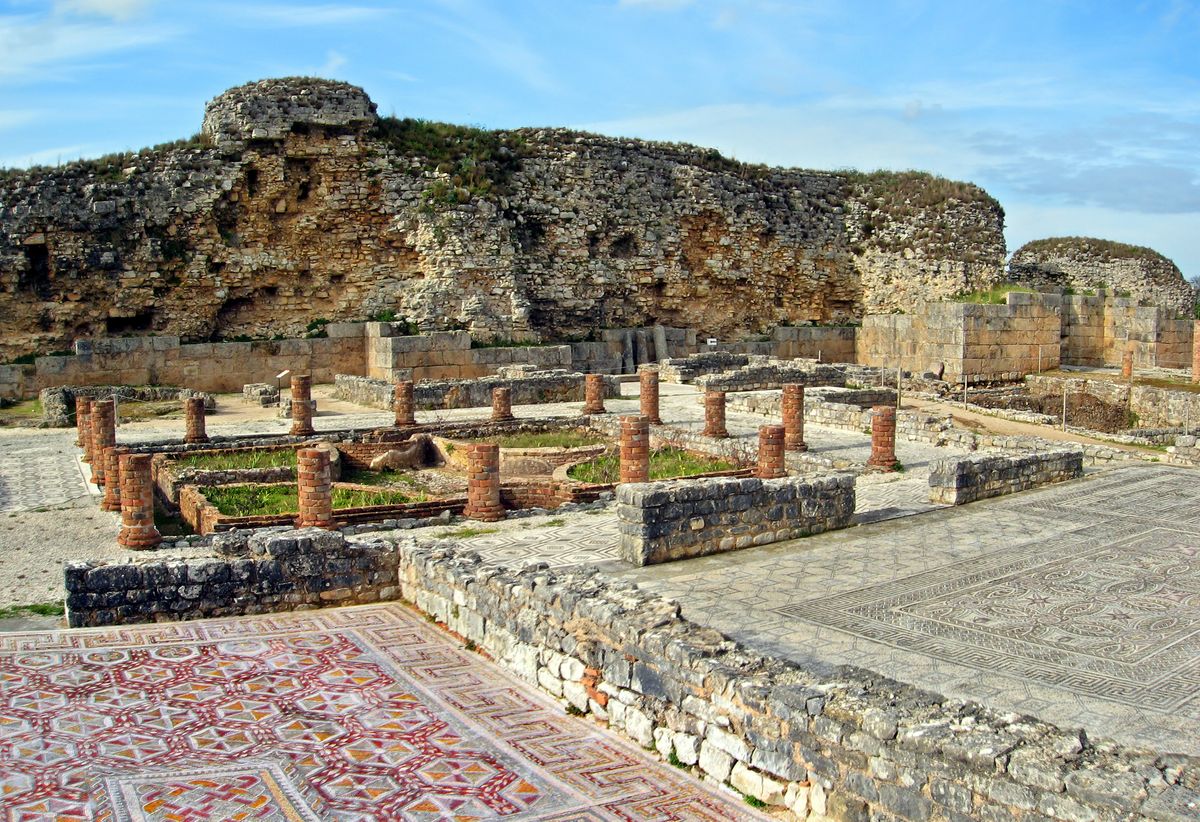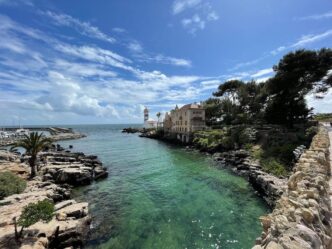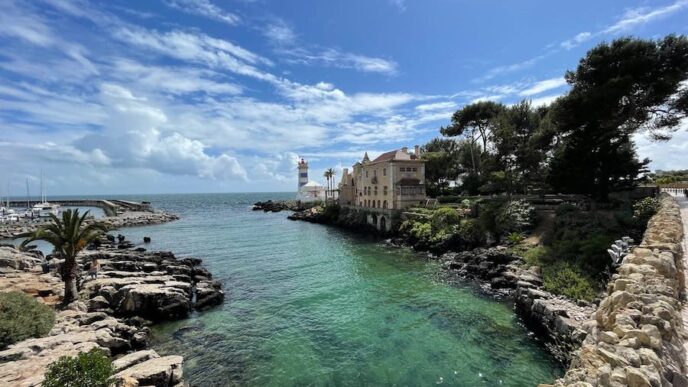Portugal’s overseas territories have played a significant role in shaping the country’s history and cultural identity. From the early 15th century, Portugal embarked on a period of maritime exploration and colonial expansion, leaving a lasting legacy across the globe. This article delves into the historical journey of the Portuguese Empire and examines the impact of its overseas territories, both in the past and in the contemporary world.
Key Points
- The Portuguese Empire was a pioneering force in global exploration and colonization, leaving a cultural and linguistic legacy that persists today.
- Educational reforms, such as those by the Marquis of Pombal, played a crucial role in the development of Portugal’s territories, shaping the education system and policy.
- Modern Portugal maintains strong ties with former colonies through the Community of Portuguese Language Countries (CPLP), fostering cultural and economic connections.
The Historical Expansion of the Portuguese Empire

Early Beginnings and Maritime Explorations
The genesis of the Portuguese Empire is marked by audacious maritime explorations, spearheaded by Prince Henry the Navigator in the 15th century. These expeditions laid the groundwork for a global empire, with navigators charting new sea routes and claiming territories.
Portuguese sailors, driven by the quest for trade and territory, ventured beyond familiar waters, reaching the Madeira Islands, Azores, and further along the African coast. Their voyages culminated in Vasco da Gama’s landmark journey to India in 1498, establishing a sea route that would become pivotal for trade and influence.
The establishment of forts and factories along the coasts and islands of East Asia by the mid-16th century underscored Portugal’s commitment to a lasting presence overseas.
The strategic positioning of these outposts facilitated control over maritime trade routes and the spice trade, which became cornerstones of the empire’s economy. The expansion of Portuguese influence was not only territorial but also cultural, with the introduction of the Portuguese language and customs in the newly discovered lands.
Influence and Governance in Africa and Asia
Portugal’s maritime prowess in the 15th and 16th centuries established it as a dominant force in Africa and Asia. The establishment of trading posts and fortifications along the coasts facilitated not only trade but also the exertion of Portuguese influence and governance.
In Africa, Portugal’s presence was marked by the control of strategic points such as Ceuta, the first overseas conquest, and later, key hubs like Mozambique and Angola. In Asia, the capture of Goa served as a gateway to the East, with Macau and Timor following as critical outposts.
The Portuguese language’s global importance is underscored by its historical roots and widespread use across continents.
The administration of these territories was characterized by a blend of military, commercial, and religious interests. The Portuguese crown’s direct involvement varied, with some areas under tighter control than others. This period also saw the introduction of Catholicism, which would leave a lasting cultural and religious imprint on the regions.
The legacy of Portuguese governance can still be observed in the legal systems, architectural styles, and, most notably, the linguistic landscape of these former colonies. The Portuguese language remains a unifying thread, binding disparate geographies with a common cultural heritage.
The Marquis of Pombal’s Education Reforms
Following the Marquis of Pombal’s education reforms, Portugal entered a period marked by liberalism and a growing belief in the value of education for the general populace. The 19th century saw efforts to organize and structure education, yet the country faced a severe economic crisis and political turmoil, culminating in the transition from monarchy to republic in 1910. These challenges hindered the full realization of educational and liberal-inspired public education initiatives.
The expansionist movement that began in 1415 had spread Portuguese language and culture across continents, but it was the 18th century under the Marquis of Pombal when education policy took shape. Pombal’s reforms established a network of public primary schools, aiming to cover the nation’s main areas. However, the Salazar regime’s policies later led to the disqualification of teachers and a devaluation of education, leaving Portugal lagging behind Europe’s educational expansion.
The preparation and negotiation of educational legislation became a landmark in Portugal’s history. Despite being presented by a minority government, it was the result of collaborative efforts involving multiple political parties, pedagogues, and education specialists. This legislation gained wide consensus and reflected a shift in priorities towards curricular, technical, and professional aspects of education, while also acknowledging the potential adverse effects of an expanding educational system on quality.
End of an Era: The Decline of Portuguese Overseas Territories
The twilight of the Portuguese Empire was marked by a series of independence movements across its colonies, particularly in Africa and Asia. The strain of maintaining an expansive empire, coupled with international pressure and internal dissent, led to a gradual relinquishment of territories.
- 1961: Start of the colonial war, driven by independence movements.
- International Condemnation: Portugal faced global criticism for its colonial policies.
- Regime Instability: The authoritarian regime weakened under social and political pressures.
The unraveling of Portugal’s overseas empire was not just the end of an era; it was the beginning of a new chapter in the nation’s history, one that would reshape its identity and its role on the world stage.
The decolonization process was complex and often tumultuous, resulting in a shift from a colonial power to a nation forging new relationships with its former territories. This transition set the stage for the establishment of the Community of Portuguese Language Countries (CPLP) and other initiatives aimed at maintaining cultural and economic ties.
Portugal’s Overseas Territories in the Modern Era

The Legacy of Portuguese Culture Globally
Portugal’s historical expansion during the Age of Discovery left an indelible mark on the world, weaving Portuguese culture into the fabric of societies across the globe. The Portuguese language, the fifth most spoken language worldwide, serves as a testament to this legacy, uniting over 260 million speakers from Brazil to East Timor. The influence extends beyond language, with Portuguese architecture, cuisine, and customs enriching the cultural tapestry of its former colonies.
The dissemination of Portuguese culture and language across continents has fostered a unique global community, bound by shared history and heritage.
The Society for Portuguese Worldwide, established in the early 20th century, played a pivotal role in nurturing these cultural ties. Its initiatives, such as the exchange program initiated in 1932 and the General Congregation of Portuguese Communities, have strengthened the connections between Portugal and its diaspora.
The cultural legacy of Portugal is not confined to the past; it continues to evolve and influence global culture. The Community of Portuguese Language Countries (CPLP) exemplifies this ongoing cultural dialogue, promoting cooperation and development among its members.
Community of Portuguese Language Countries (CPLP)
The Community of Portuguese Language Countries (CPLP) serves as a pivotal organization in maintaining the linguistic and cultural bonds between Portugal and its former colonies. Established to strengthen cultural and economic links, the CPLP includes members such as Angola, Brazil, Cape Verde, Guinea Bissau, Mozambique, Sao Tome and Principe, and East Timor, which joined following its independence in 2002. Equatorial Guinea became a member in 2014, expanding the community beyond traditional Lusophone nations.
The CPLP’s reach extends further through associate members and observers, encompassing countries and regions across the globe, from Japan to Macao. This inclusive approach reflects the CPLP’s evolution from a linguistic community to a broader platform for international cooperation.
The CPLP not only preserves the Portuguese language but also fosters economic and educational initiatives, enhancing the development of its member states.
The organization’s commitment to education and development echoes Portugal’s historical efforts, such as the Marquis of Pombal’s 18th-century educational reforms, and continues to influence policy and cooperation among Portuguese-speaking countries today.
Contemporary Relations with Former Colonies
Following the decolonization period, Portugal has actively sought to maintain and enhance its relationships with former colonies. The establishment of the Community of Portuguese Language Countries (CPLP) is a testament to Portugal’s commitment to fostering cultural and economic ties with its former territories. This multilateral forum serves as a platform for cooperation and dialogue, encompassing nations from Africa, Asia, and South America.
Portugal’s contemporary relations with former colonies are multifaceted, involving diplomatic, economic, and cultural dimensions. Bilateral agreements and strategic partnerships have been instrumental in promoting mutual interests and development goals. The country’s approach is characterized by a respect for sovereignty and a focus on collaborative progress.
Portugal’s engagement with former colonies is not merely a matter of historical connection but a dynamic and evolving partnership that seeks to address common challenges and leverage shared opportunities.
The table below highlights key aspects of Portugal’s ongoing relations with select former colonies:
| Former Colony | Type of Cooperation | Notable Initiatives |
|---|---|---|
| Angola | Economic, Diplomatic | Joint business ventures, educational programs |
| Brazil | Cultural, Scientific | Cultural exchanges, scientific research collaborations |
| Mozambique | Development, Aid | Infrastructure projects, healthcare support |
| East Timor | Advisory, Military | Security sector reform, governance advisory |
Portugal’s 2024 elections have sparked international interest, with a rise in voter turnout and new political forces emerging. Amidst these political shifts, the country’s commitment to the European Union and digital innovation remains unwavering.
Educational and Economic Development Initiatives
Portugal’s commitment to educational and economic development in its former colonies is evident through various initiatives. The OECD’s analysis of national education policies in 1959/60 led to the Mediterranean Regional Project, which brought significant reforms to the education system. These reforms were aimed at expanding access to education, particularly for students facing economic hardships, and optimizing the use of existing resources.
During times of economic austerity, Portugal faced challenges in maintaining growth in education and public services. However, subsequent governments have continued to invest in education, recognizing its role as a driver of economic development. The implementation of compulsory education was supported by measures such as school transport, canteens, and financial aid for families in need.
The political cycle beginning in 2002 saw a focus on higher education reform and the diversification of upper secondary education. This included the enhancement of technological and vocational courses, as outlined in Decree-Law No. 74/2004, 26 March, which was a part of the upper secondary reform.
Portugal’s approach to educational reform has been multifaceted, addressing both the immediate needs of students and the long-term goal of fostering human capital for sustainable development.
Conclusion
The historical tapestry of Portugal’s overseas territories is rich and complex, woven from threads of exploration, colonization, and cultural exchange that spanned several centuries. From the pioneering voyages that established the Portuguese Empire as a formidable maritime power to the modern-day cultural and economic ties within the Community of Portuguese Language Countries (CPLP), Portugal’s legacy as a nation with a global reach is undeniable. The remnants of this legacy are evident not only in the historical records and educational policies but also in the linguistic and cultural imprints left across continents. As the oldest nation-state in Europe, Portugal’s journey from its Age of Discovery to contemporary times reflects a narrative of resilience, adaptation, and enduring influence on the world stage.













